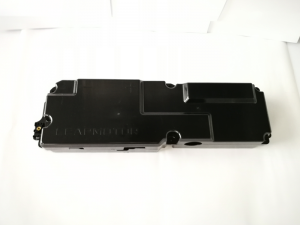Injection molding is widely known as the process used for manufacturing plastic parts, but this technique is not limited to plastics alone. Although plastic injection molding is by far the most common application, the principles of injection molding can be applied to a range of other materials, such as metals, ceramics, and rubber. This versatility makes injection molding an essential process in various industries, from automotive to electronics, where precision and efficiency are crucial.
Injection Molding in the Automotive Industry
One of the most significant applications of injection molding is in the automotive industry. Automotive manufacturers rely heavily on
Automotive Plastic Injection Molding to create a vast range of components. From interior parts like dashboards and door panels to external components such as bumpers and headlights, injection molding provides an efficient and cost-effective method for mass-producing high-quality parts.
The process is particularly valued for its ability to produce complex shapes with tight tolerances. The high level of precision required in automotive components is a natural fit for injection molding. The materials used in
Injection Molding Automotive Parts, such as ABS (Acrylonitrile Butadiene Styrene) and polycarbonate, are strong, lightweight, and can be molded into intricate shapes. These materials also meet automotive industry standards for durability and performance under high stress and varying environmental conditions.
The Role of Automotive Mold Makers
An essential element in the success of injection molding is the expertise of the
Automotive Mold Maker. These professionals are responsible for designing and producing the molds used in the injection molding process. Molds for automotive parts are highly specialized and must meet precise design specifications to ensure that the final product fits perfectly into the assembly process.
An experienced automotive mold maker uses advanced CAD (Computer-Aided Design) tools and simulation software to create molds that minimize material waste and maximize efficiency. They also take into account factors such as mold longevity, ease of maintenance, and compatibility with various injection molding machines. Mold makers in the automotive industry play a crucial role in ensuring that parts are not only functional but also cost-effective to produce.
Beyond Plastics: Injection Molding with Other Materials
While plastic injection molding is the most well-known form, the technology can also be adapted to process other materials. For instance, metal injection molding (MIM) is used to manufacture small, complex metal parts that are lightweight and durable. MIM is particularly beneficial in the automotive sector for producing parts like gears, brackets, and other structural components where high strength and precision are required.
In addition to metals, rubber injection molding is another popular variant used in industries like automotive and medical device manufacturing. Rubber parts such as seals, gaskets, and hoses are essential to the automotive sector, where sealing is crucial to prevent leaks and ensure performance under various operating conditions.
Ceramic injection molding (CIM) is yet another specialized form, commonly used in industries that require advanced ceramics, such as electronics and aerospace. Although less common than plastic molding, CIM can produce intricate ceramic components for everything from medical devices to high-performance components in automobiles.
The Flexibility of Injection Molding
Injection molding offers significant benefits beyond plastic parts. Its versatility allows it to be applied in producing complex, high-precision parts made from a variety of materials. The ability to mold different substances such as metal, rubber, and ceramics alongside plastics makes it an invaluable manufacturing technique in industries like automotive, medical, electronics, and more.
With the continued development of materials and molding technologies, Automotive Mold Makers and manufacturers in other sectors are finding new and innovative ways to harness the power of injection molding for a broader range of applications. Whether creating lightweight plastic components for vehicles or producing durable metal parts for high-performance machinery, injection molding remains one of the most reliable and efficient manufacturing processes available today.




 +1 270-792-5768
+1 270-792-5768 +1 270-282-2096
+1 270-282-2096 info@kenmold.com
info@kenmold.com skype@kenmold.com
skype@kenmold.com